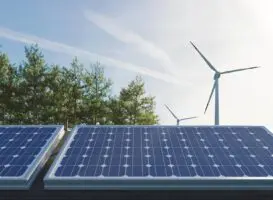Energy White Paper dammed by Professor Ross Garnaut for promoting coal at expense of solar, and shaping tariffs in a way that will simply encourage consumers to quit the grid.
Utilites and regulators have been repeatedly warned about the need to adapt their business models and tariff settings to take into account the rapid changes in energy technology – particularly in rooftop solar and battery storage.
The Abbott government’s energy white paper even mouthed the same words, noting the rapid energy transition that would change the way that energy was delivered.
But words are all it delivered. According to Ross Garnaut, the leading economist and former climate change advisor to the Labor government, the energy white paper has failed to do anything about it, either through its energy vision for the future, or its policy recommendations.
It ignores climate change, encourages investment in coal-fired generation, discourages solar power, and seeks to hobble investment in large-scale renewables.
Garnaut accuses the energy white paper of seeking to block new competition from decentralised power – essentially rooftop solar – by forcing solar households to pay higher fixed charges.
Garnaut says these fixed charges are perverse and not cost reflective at all, because they simply discourage consumers from using less energy.
And, as RenewEconomy pointed out in its analysis of the energy white paper, the document ignores the much larger cross subsidies from urban to regional users, and from household and small business to large industrial users.
“The urban-regional transfers convey no benefit to many intended beneficiaries now that many can meet their own requirements locally at lower costs to themselves,” Garnaut writes in an opinion piece in the Australian Financial Review (subscription required).
the Australian Financial Review (subscription required).
“The unintended consequence of applying fixed charges indiscriminately is uneconomically large incentives to disconnect from the grid.”
This is exactly the warning that has been made to utilities and regulators over the last few years – by CSIRO, former US energy secretary Stephen Chu, even the Australian Energy Regulator (which sets prices but not tariff design).
They, and numerous financial analysts, have repeatedly pointed out that erecting barriers to protect incumbent technologies and business models will be self defeating.
The CSIRO, for instance, has suggested one third of users could disconnect from the grid if utilities do not adapt. UBS and other analysts suggest it may be economic for households – even those in big cities – to do so from 2018. The utilities can see change happening, but are counting on it occurring slowly.
Garnaut goes on to note that the energy white paper relies on the now redundant “new policies” scenario from the International Energy Agency, and obsolete forecasts for Chinese and global demand for coal.
“This obsolescence means that tens of billions of dollars of investment in expanding coal supply capacity will never return the cost of capital,” Garnaut writes. “A better-informed government might have encouraged caution into private decisions, instead of reinforcing errors.”
Garnaut also ridicules the Abbott government’s attack on the renewable energy target, particularly in the absence of a carbon price, which Garnaut says would have been preferable.
He said even analysis undertaken for the Warburton review showed that the RET substantially reduces carbon emissions in the electricity sector while reducing the present value of electricity costs for users.
“Keeping the RET target at 41TWh would reduce electricity costs. Some coal-based electricity generators would face earlier closure. Temporary underperformance against the target would generate some government revenue with no damage to the economy and little upward pressure on prices compared with a lower RET target. Do the sums.”
And Garnaut is damning of the proposed exemption of trade-exposed emissions intensive industry from RET obligations – something which now appears to be a bi-partisan position.
“The RET lowers wholesale electricity prices for emissions-intensive industries, which are already compensated for most of their renewable energy certificate obligations,” he writes.
“With their losses already mostly socialised and their gains from lower wholesale prices capitalised, the white paper wants to increase the net subsidy.
“The Age of Entitlement has never had it so good.”
Some good aspects noted by Garnaut include its focus on effective competition and its refusal to countenance payments for closures of coal fired generators.
“Three-quarters of Australia’s coal-based generators are living beyond their design dates. Those that are losing money need no help to close,” Garnaut notes.










